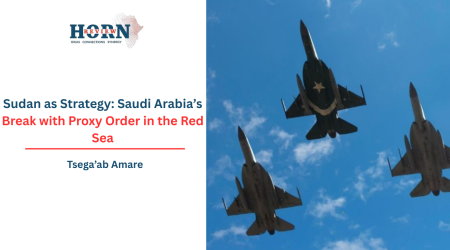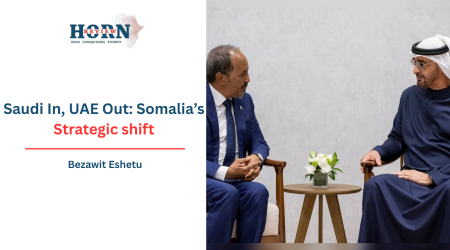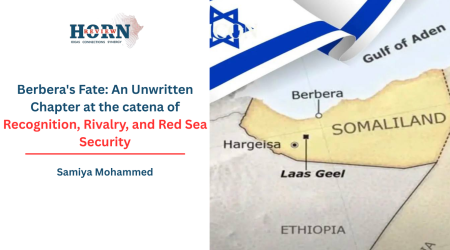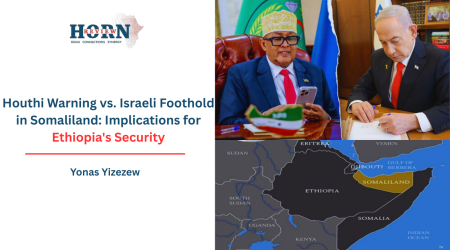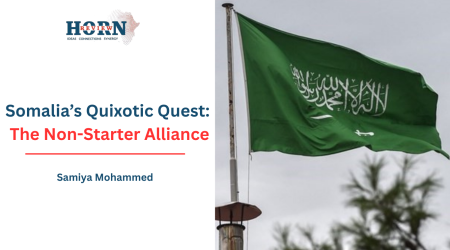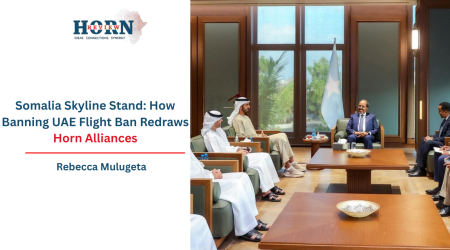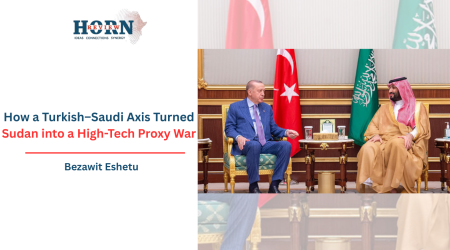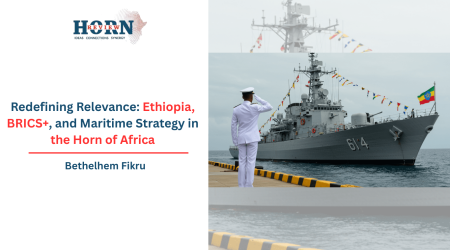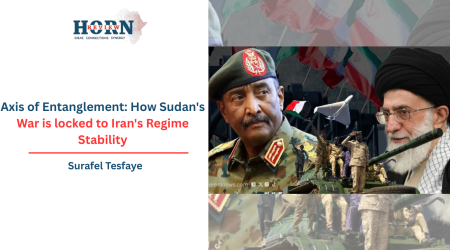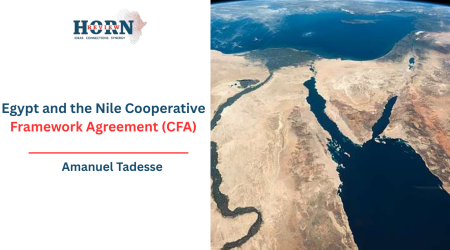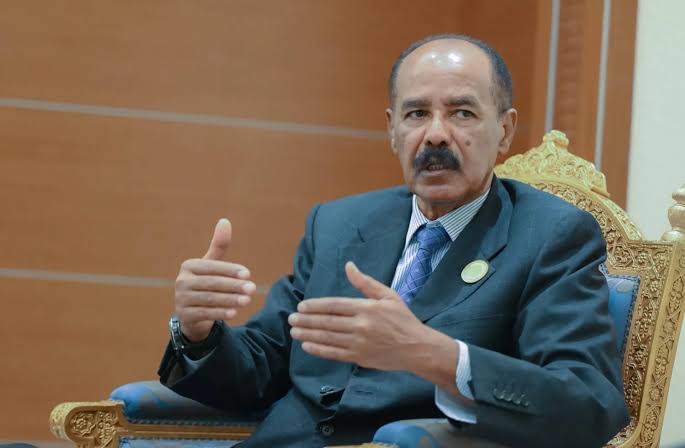
27
May
Afwerki’s Independence Day Speech: The Contradiction Between Sovereignty and the Power of “External Forces”
President Isaias Afwerki’s 34th Independence Day address on May 24 presented a familiar pattern: the ruling Eritrean government proclaimed unwavering national sovereignty while emphasizing looming external threats. Afwerki struck an aggressive tone toward neighbouring Ethiopia and unnamed foreign ‘forces,’ portraying Eritrea as under siege by external agendas even as it celebrated independence. He accused shadowy “external forces” of manipulating Ethiopia’s ruling Prosperity Party to advance contentious issues, from Nile water rights and Red Sea access to ethnic politics, portraying Eritrea as defending itself from Ethiopian expansionism and foreign intrigue. At the same time, he reiterated that Eritrea would forge ahead with domestic development projects, despite these supposed “challenges”. His statements reflect what critics call an ‘inversion of reality,’ highlighting a paradox in Eritrean nationalism, a constant appeal to external danger undercuts the claim that the country is a fully self-reliant sovereign. It suggests that the state’s narrative of independence is defined as much by its “enemies” as by any internal achievements.
Afwerki’s rhetoric reflects a historical pattern of deflecting domestic criticism by invoking foreign threats. Eritrean leaders have long warned of foreign conspiracies while maintaining tight control at home. International analysts note that Afwerki’s regime often deflects criticism of its record by blaming “external forces” for Ethiopia’s and Eritrea’s troubles. For example, in earlier interviews, Afwerki described outside powers colluding with Ethiopian factions “to hurt Eritrea,” suggesting that any unrest is the work of outsiders rather than domestic policy failures. Isaias also attributes the horn’s problems to “foreign forces”, utilizing the narrative to justify Eritrea’s actions or portray himself as an agent of stability. In this view, emphasis on Eritrea as a strategic actor abroad, or as a victim of Ethiopian ambitions and Western interventionism, allows the government to overshadow criticisms of its political repression and economic hardship at home. Even in the Independence Day speech, the lack of concrete references to Eritrea’s own domestic problems stood out: while Afwerki detailed Ethiopia’s woes and made vague references to his country’s development plans, internal challenges and grievances went unmentioned.
Afwerki’s speech also accentuated the persistence of Ethiopia-centric framing in Eritrean discourse. Mentioning the failed 2018 rapprochement with Addis Ababa, he portrayed Prime Minister Abiy Ahmed’s government as essentially a client of foreign powers, describing Ethiopia’s Prosperity Party as a “surrogate” of outside interests. Isaias brushed aside Ethiopia’s pursuit of access to the sea and the politics surrounding the Nile as mere works of foreign hands. He went on to describe what he considers as hostile acts by Ethiopia, warning that country is “acquiring weapons and technology … in order to unleash war,” funded by “dollars squandered” on domestic “traitors”. By claiming that Abiy’s party and even regional voices are driven by hidden agendas, Afwerki reinforced an “us vs. them” narrative. This Ethiopia-focused hostility was strikingly one-sided: unlike previous years when he attacked the U.S. and the Tigray People’s Liberation Front, Afwerki’s speech this year singled out only Ethiopia and unspecified “external forces”.
While denouncing Ethiopia, Isaias laid bare the contradiction of Eritrea’s position. While the President portrays his nation as a force for regional stability and peace, the evidence on the ground tells a different story.
Eritrea, since its inception, has played an active role in regional conflicts. More recently, U.S. and UN sources have repeatedly accused Eritrea of deploying its army in northern Ethiopia during the 2020-22 Tigray war, where Eritrean troops were implicated in atrocities including mass killings, rape and forced displacement. Human-rights reports confirm that Eritrean forces remained in Tigray long after the ceasefire, committing severe abuses. Ethiopian officials also accuse Asmara of actively stirring unrest in the Amhara and Afar regions. For example, Ethiopian analysts contend that Eritrea has supported armed groups like the Amhara Fano militia and even dissident TPLF elements in a bid to undermine the federal government. Isaias has reportedly continued to support anti-Ethiopian actors in Tigray, even going as far as to open the Zalambessa crossing without the federal government’s consent. Many in Ethiopia now see Eritrea as occupying Ethiopian territories and aiding rebels “seeking to overthrow” the Ethiopian government. Beyond Ethiopia, Isaias also failed to highlight Eritrea’s involvement in worsening the conflict in Sudan. He blamed the same foreign hands for exacerbating the crises, while Eritrea stands beside the people of Sudan.
This sharpened antagonism between Ethiopia and Eritrea comes amid warnings of a new conflict. Regional experts say military mobilizations suggest war could erupt at any moment. The Eritrean leader’s emphasis on Ethiopia’s sea access ambitions and the role of foreign powers taps into a broader gulf of mistrust. The 2022 Pretoria Agreement had called for all foreign troops, namely Eritrean, to withdraw from Ethiopia, yet many remain entrenched and continue to ramp up the state’s destabilizing actions. Eritrea even signed a security pact with Egypt and Somalia last year, widely seen as a countermeasure to Ethiopian interests on the Red Sea. Afwerki’s speech, portraying Abiy’s party as a puppet of unspecified “external” agendas, further fuels hostilities and has been a recipient of condemnation. Afewerki’s words frame every Ethiopian gesture as part of a hostile foreign scheme. This rhetoric, similar to the ones in the past, bolsters domestic unity by identifying clear enemies. In the long term, however, it entrenches the dangerous image of perpetual siege: a small-state sovereignty defined through adversaries, rather than through stable, mutual cooperation.
Ultimately, Eritrea’s Independence Day message revealed a tension at the heart of its statecraft. On paper, an independent Eritrea proclaims full sovereignty. Yet Afwerki’s address showed a nation still narrating its identity through external conflict, raising questions about the essence of that sovereignty. Observers note that this reflex of blaming outsiders can mask genuine domestic challenges, from democratic reform to economic reform. If Eritrea’s legitimacy rests on resisting foreign conspiracies, then grounded peace stands in the way of Isaias’s and Shabia’s continued reign in the country. The portrayal of Ethiopia’s government as a “surrogate” of Western powers suggests that, for Asmara, genuine partnership with Addis Ababa is nearly inconceivable. By equating Eritrea’s security with fighting external villains, the leadership may be distracting from the very issues, governance, rights, and development, that its people most urgently face.

